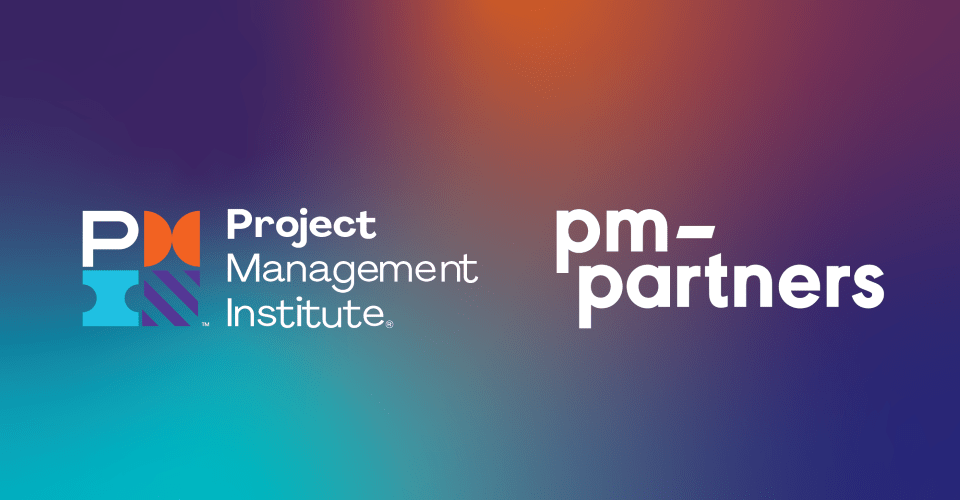
Business Analysis Professional Development Program
(Level 1 + Level 2)
DURATION
6 days
PRICE (EXCL. GST)
$3,395
LOCATIONS/DELIVERY METHOD
Brisbane
Melbourne
Sydney
Virtual
EXAM
No exam
Business Analysis Professional Development Program overview
Business Analysis is a world recognised profession. Increasingly projects are coming under more and more scrutiny to ensure that quality requirements satisfy overall value, to both the customer and the business regardless of project methods.
Enroll for the Business Analysis Professional Development Programme course and you’ll gain:
- Hands-on, business ready expertise that you can immediately apply
- Comprehensive Business Analysis programme materials and case studies
This 6-day course comprises of the key learnings and outcomes from both the Business Analysis Fundamentals (Level 1) and Business Analysis in Practice (Level 2) courses and is ideal for individuals wanting to undergo both.
Business Analysis Fundamentals – Level 1: This interactive and practical course provides you with proven tools, techniques and processes to help deliver solutions that satisfy stakeholder requirements and deliver expected benefits to the organisation. Our Business Analysis in Practice course, provides practitioners with an in-depth opportunity to develop and evaluate solution requirements that encompass organisational and environment factors such as business processes, systems and organisational culture.
Business Analysis in Practice – Level 2: With a focus on application of tasks, activities and techniques, this course provides practitioners with an in-depth opportunity to develop solution requirements that encompass organisational and environment factors such as business processes, systems and organisational culture.
Business Analysis Fundamentals – Level 1: This course provides participants with the fundamental knowledge of the processes and disciplines that enable the delivery of objective requirements that add maximum value to an organisation.
By combining a practical and pragmatic approach to business analysis, aligned with industry standards, this course will provide you with the opportunity to prepare for the International Institute of Business Analysis™ (IIBA®) industry certification ECBA™.
Using real-life scenarios will develop your skills, enabling you to put into practice tasks and techniques that allows you to gain general knowledge and practical experience. Undertaking a set of review questions at the end of each session will ensure full understanding of the material covered. It will also serve as a study aid for those who wish to undertake the ECBA™ certificate.
Business Analysis in Practice – Level 2: This course provides participants with a standardised and systematic approach for eliciting, analysing and managing business requirements that form the basis for successful solutions delivered to the organisation.
It uses a real-life case study approach to plan, manage and execute a detailed requirements development process, to successfully manage stakeholders, and to reduce organisational risk by understanding the impact of change across the business.
In BA Fundamentals, the focus is on understanding the role of the Business Analysts, key business analysis concepts and which common techniques can assist the BA in specific situations. The focus of BA in Practice is to practically apply a range of techniques to common analysis activities.
This course can assist in preparation for the Certification of Capability in Business Analysis™ (CCBA®) Certification.
COURSE SUMMARY
Module 1
Session 1: Setting the Scene
Course objectives. IIBA certification.
Session 2: Introduction to Business Analysis – Core Concepts
What is Business Analysis? Core competencies of a successful Business Analyst. Working with the BABOK® Guide
Session 3: Planning Business Analysis activities
Planning and the BABOK Guide. Writing a problem / opportunity statement. Scope modelling.
Session 4: Eliciting and Communication Information
Elicitation and the BABOK Guide. Conducting elicitation using collaborative games. Confirming elicitation results and communicating information.
Session 5: Stakeholder collaboration
Identifying and analysing stakeholders. Categorising stakeholders. Engaging stakeholders through collaboration
Session 6: Strategy analysis
Strategy analysis and the BABOK Guide. Analysing the current state. Defining the future state.
Session 7: Defining requirements
Requirements and the BABOK Guide. Writing effective requirements (taking into account attributes, constraints, business rules and assumptions).
Session 8: Requirements Lifecycle Management
Requirements lifecycle management and the BABOK Guide. Overview of tracing and maintaining requirements. Prioritising requirements. Assessing and approving requirements changes.
Session 9: Modelling requirements
The Requirements Analysis and Design Definition knowledge area. Specifying and modelling requirements. Understanding the difference between: requirements and designs, and matrices and diagrams. Using models to drive requirements.
Session 10: Evaluating Requirements, Designs and the Solution
Evaluating requirements through verification and validation. Recommending a solution using acceptance and evaluation criteria. Evaluating the implemented solution.
This course follows a practical path with participants working on a case study to fully define, scope, model, validate and verify a solution based on elicited, prioritised requirements from identified stakeholders.
Module 2
Session 1: Setting the Scene
Course objectives. IIBA certification.
Session 2: Business Analysis Planning and Monitoring
Overview of the Business Analysis Planning and Monitoring knowledge area. Planning your approach – predictive (e.g. waterfall) versus adaptive (e.g. agile). Identifying and analysing stakeholders. Planning for BA governance and Information Management. Identifying BA performance improvements.
Session 3: Elicitation and Collaboration
Overview of the Elicitation and Collaboration knowledge area. Preparing for and conducting elicitation. Confirming and communicating elicitation results.
Session 4: Strategy Analysis
Overview of the Strategy Analysis knowledge area. Techniques used in Strategy Analysis.
Session 5: Requirements Analysis and Design Definition (RADD)
Overview of the RADD knowledge area. Specifying and verifying requirements using boilerplates, user stories, pre-defined quality characteristics and acceptance criteria. Modelling requirements using a range of techniques such as process models, data models and business rules analysis. Defining design options and recommending a solution based on potential value.
Session 6: Requirements Lifecycle Management
Overview of the Requirements Lifecycle Management knowledge area. Tracing, maintaining, prioritising and reusing requirements.
Session 7: Solution Evaluation
Overview of the Solution Evaluation knowledge area. Measuring solution performance using value attributes, qualitative and quantitative measures. Analysing performance measures. Assessing solution and enterprise limitations that limit the value an implemented solution brings to an organisation. Recommending actions to increase the value of an implemented solution.
This course follows a practical path with participants working on a case study to develop a solution using the most appropriate method (agile / waterfall). This will include practical experience of using a range of techniques and models such as personas, business capability maps, use case diagrams and scenarios, user stories and acceptance criteria, data flow diagrams, state models, and many more…
This course will also focus on managing and improving BA work, so participants will be asked to create supporting artefacts such as risk registers and change control procedures.
As part of PM-Partners’ new integrated learning solution, this course offers students the option to attend our bespoke classroom in person or virtually by dialling in from a remote location.
Our accredited, multi-modal trainers will use a comprehensive participant handbook and a dynamic case study delivery approach to provide all participants with an interactive, multi-faceted and challenging learning experience. The case study pursued in the Business Analysis in Practice is a natural follow on from the case study undertaken in our Business Analysis Fundamentals course. Learners will be actively engaged in progressing an initial issue or opportunity into comprehensively modelled, verified and validated business requirements. These requirements are then evaluated and prioritised to produce a recommended solution based on business value.
For group bookings, courses can be customised to suit your requirements and conducted onsite at your premises, at our training centre, or virtually.
Virtual training: Learn more about our virtual delivery.
International Institute of Business Analysis (IIBA) is a non-profit organisation whose vision is to be the leading world-wide professional association that develops and maintains standards for the practice of Business Analysis, and for the certification of practitioners.
This course is aligned to the BABOK Guide v3 knowledge areas and can assist in preparation for the ECBA and CCBA Certifications.
Note: whilst this program helps prepare you for the ECBA and CCBA certification, additional self-study is required prior to taking the exams. Please speak to your course Trainer if you are planning to sit the certification exams for direction and study advice.
PM-Partners is an Endorsed Education Provider of IIBA.
DEVELOPMENT UNITS
Participants who have been awarded the Project Management Professional (PMP) credential by the Project Management Institute (PMI) are eligible to earn:
- 21 PDUs for their participation in the ‘Fundamentals (Level 1)' course (21 Ways of Working)
- 21 PDUs for their participation in the ‘In Practice (Level 2)’ course (19 Ways of Working, 2 Business Acumen)
LEARNING OUTCOMES
Successful completion of this course will enable participants to:
- Define the roles and responsibilities of a business analyst
- Articulate underlying competencies to guide them in Business Analysis best practices
- Define core business analysis concepts using the Business Analysis Core Concept Model (BACCM™)
- Identify key techniques as appropriate for business analysis activities
- Identify core business analysis activities as they relate to each knowledge area in the BABOK Guide
- Demonstrate an awareness and understanding in how to approach business analysis planning, information management and stakeholder engagement
- Demonstrate an awareness and understanding in how to collaborate, communicate and conduct elicitation efforts with stakeholders
- Demonstrate an awareness and understanding in how to manage requirements including prioritising, tracing, managing, changing and approving requirements activities
- Demonstrate an awareness of understanding how to capture current and desired state in a manner that proves alignment to organisational strategy
- Demonstrate an awareness and understanding of how to ensure that requirements and design meet the desired business need
- Demonstrate an awareness and understanding of how to ensure that value is sought when designing, delivering, implementing and maintaining a solution
- Define, recommend and apply knowledge for the purposes of guiding business analysis activities, managing output delivered by said activities, and managing stakeholder engagement. (Business Analysis Planning and Monitoring)
- Define, recommend, apply and pragmatically prepare for, conduct, confirm, communicate and collaborate with stakeholders for the purposes of defining and designing requirements to meet a business need. (Elicitation and Collaboration)
- Apply and recommend a means by which an organisation can effectively obtain goals and objectives though the identification of current state practices and defining future state practices, considering risk and overall change strategy. (Strategy Analysis)
- Apply and recommend a means by which requirements are to be modelled, verified, validated and supported in a pragmatic architecture that fosters design options and ultimately value in recommended solution options. (Requirements Analysis and Design Definition)
- Apply and recommend a course of action using appropriate tasks and techniques necessary to manage requirements from inception through to retirement. (Requirements Lifecycle Management)
- Recommend options to ensure that solutions delivered adhere to standards and realise the full potential - as dictated by the solution options recommended and deployed. (Solution Evaluation)
- Review and measure the effectiveness of deployed solutions to understand solution and enterprise limitations, which can then be used to recommend opportunities for increased efficiencies. (Solution Evaluation)
To achieve the greatest benefit from participation in this programme, participants should be working in a Business Analysis environment or planning to do so within the near future.
NEXT STEPS
If you are pursuing BA certification, consider taking our 5-day Level 3 – Certified Business Analysis Professional (CBAP) Exam Prep course.
If you would like to know more about the BA role in an Agile environment, then consider taking our AgileBA® Foundation Certificate course.
If you would like to know more about taking on a Product Owner role in an Agile environment, then consider taking our Scrum Product Owner Certified (SPOC™) course.
WHERE IS THE TRAINING VENUE LOCATED?
Sydney courses are held at 45 Clarence Street, Sydney.
Melbourne courses are held at 123 Queen Street, Melbourne.
Brisbane courses are held at 215 Adelaide Street, Brisbane.
I REQUIRE AN INVOICE BEFORE PAYMENT IS PROCESSED – CAN I STILL BOOK THIS COURSE ONLINE?
Yes. Simply select ‘invoice’ from the payment options during the checkout process and one of our consultants will be in contact to organise payment.
IS THIS A CERTIFIED COURSE?
No. There are no certifications or exams undertaken in this course, however completion of this course does assist in preparation for the ECBA and CCBA Certifications. You do receive a Completion Certificate from PM-Partners group which is necessary when applying to sit any of the ECBA , CCBA or the CBAP certifications.
Our website offers three payment options for training courses. When you select "BOOK NOW" you will be taken to the checkout. Step two: "Billing Details" is where you can select from the three payment options:
- Credit Card Payments: PM-Partners uses Stripe payment gateway to process Visa, Mastercard, Amex, as well as Apple Pay and Google Pay transactions. Stripe has been audited by a PCI-certified auditor and is certified to PCI Service Provider Level 1. This is the most stringent level of certification available in the payments industry so you can be confident that your card details are protected for online purchases.

- Bank Transfer: We cannot guarantee your registration(s) until your payment is cleared (bank transfers take 3 days to process). Instructions for payment by bank transfer will be provided at the end of the order process.
- Invoice: An invoice will be sent to you after you complete the booking. Payment is required 14 days before the course start date. If you're buying within 14 days, you need to arrange payment ASAP with a minimum of 72 hours before course start date.
Who should attend?
- Individuals entering the BA Profession
- Business Analysts wishing to build on their skills and/or to revisit fundamental business analysis practices
- Business Analysts wishing to formalise their knowledge and gain industry-recognised certification
- Professionals transitioning careers

Group bookings
Upskill your team to optimise delivery with PM-Partners’ accredited training
Professional group training and certification with volume-based discounts.
LEARN MORE





